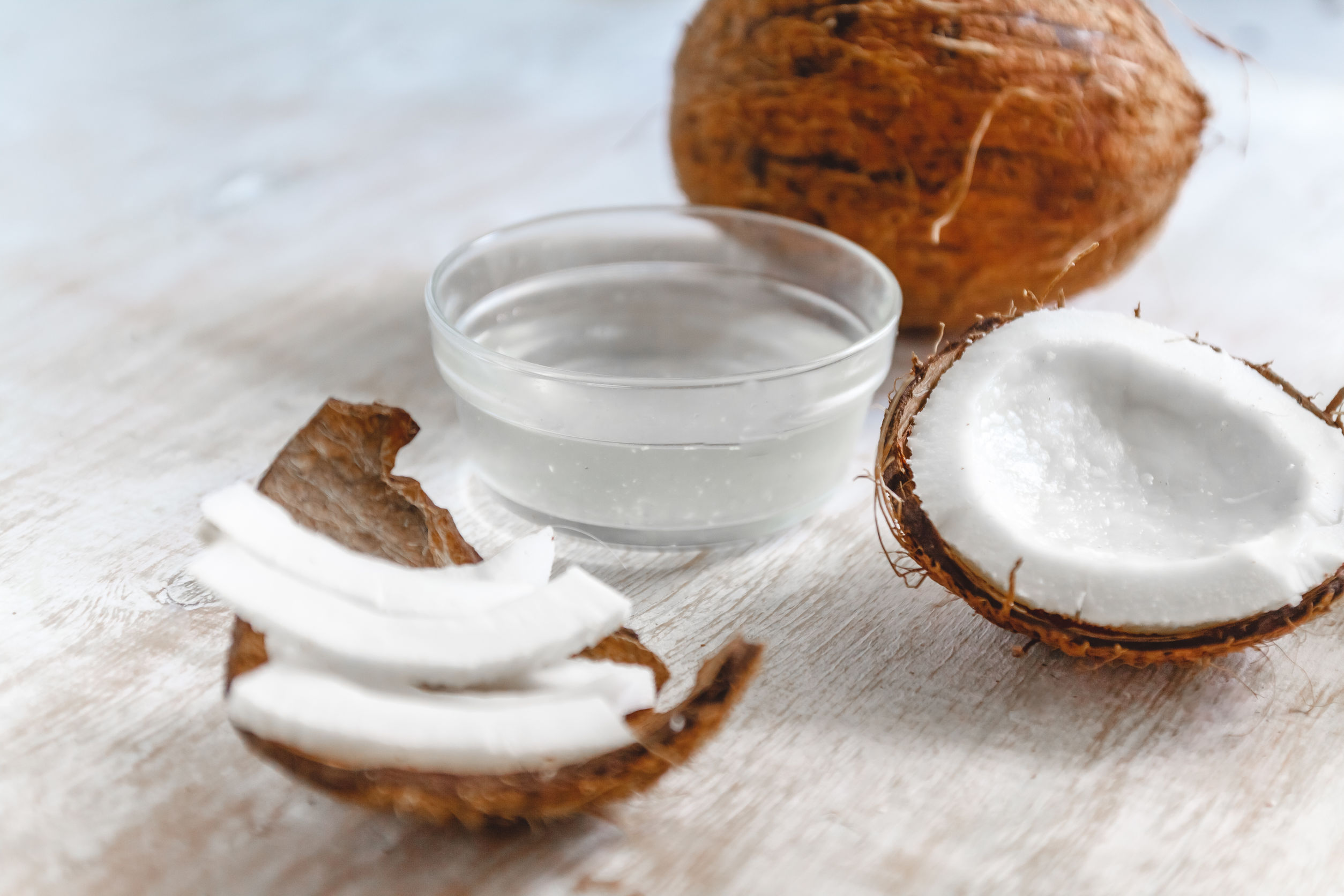”Wisconsin, what items can you find in your pantry most often? A well-stocked pantry can help you stay consistent with your nutrition. This week's article suggests some basics to keep in your pantry. We hope you find this helpful!
Reading time: 8 Minutes
MWi Hacks:
- Get some top tips on how to stock your pantry with quality produce
- Learn how to turn some of these healthy whole foods into healthy snacks and meals
MWi Summary:
- A poorly stocked kitchen can make it difficult to consistently cook fresh food.
- Having a well-stocked pantry can help you stay away from the processed-food aisles in the grocery store.
- Some great pantry staples to always have on hand include broth, coconut, dried fruit, flours, and whole grains.
The biggest obstacle to cooking fresh food on a daily basis is a poorly stocked kitchen. When you’re squeezing in a run after class or work and your stomach begins grumbling on the drive home, takeout sounds way more enticing than waiting in line at the grocery store. With a well-stocked pantry and a few staples waiting in your fridge, there will always be something delicious that you can get on the table fast.
In this chapter, we’ll take you on a tour of our kitchens. Come peer into our pantries and fridges to see the ingredients that we always keep on hand. These are the foods that fuel Shalane’s demanding training regimen and Elyse’s hectic working-momma schedule. By stocking these ingredients, you’ll be well prepared to cook all the incredible recipes in this book. A recipe is much less daunting when you only need to run out for a few fresh ingredients.
Another benefit of keeping a stocked pantry is that when you do hit the grocery store, you can stick to the perimeter and avoid the endless aisles of processed foods. Or better yet, avoid the grocery store and hit up a farmers’ market on a weekly basis to pick up fresh favorites.
What follows is an alphabetical list of the ingredients you’ll want to stock to power your athletic endeavors—whether that’s training for a marathon or chasing after a toddler. With each, we’ve included a few nutrition fun facts, culinary tips, storage tips, and more. Most of our power foods have too much of a good thing to list all the benefits in a short paragraph. Therefore, if you’re interested in learning more, flip to our Resources section.
We’ve divided the following list into Pantry Staples, Fridge Staples, and Fresh Favorites. Ready to stock up on wholesome basics? Here we go.
PANTRY STAPLES
BAKING BASICS
To fuel our baking addiction, we keep a few key ingredients on hand such as unsweetened cocoa powder, vanilla and almond extracts, baking powder, baking soda, and of course, dark chocolate.
Usually the dark chocolate never makes it into our recipes since we end up snacking on it! Lucky for us (and you!) we consider chocolate to be a superfood. Just look for a bar that has a 70% or higher cocoa content. Dark chocolate (sorry, not milk) is full of antioxidants, vitamins, and minerals. We find that a square of dark chocolate after breakfast (Elyse) or lunch (Shalane) curbs sweet cravings for the rest of the day.
When buying baking powder, look for a brand that is free of aluminum. For almond and vanilla extracts, check the labels and avoid brands with artificial flavorings.
BROTH
We keep boxed low-sodium chicken and vegetable broths stocked in our pantries and homemade broth stocked in our freezers. When buying broth, seek out an organic brand to avoid any additives and check the label to find one without sugar added. With broth on hand, you can turn out a nourishing soup or stew in under 30 minutes simply by simmering together any assortment of vegetables, beans, and whole grains.
Homemade broth, such as Classic Chicken Bone Broth and Long Run Mineral Broth, is superior in flavor and nutrition from boxed. If you’re suffering from a common running ailment like inflammatory injuries, stress fractures, or digestive distress, making broth from scratch just might be your lifeline. Broth is an incredible, mineral-rich tonic that decreases inflammation, supports healthy bones, and aids recovery. Broth made from bones is rich in gelatin, which helps cure a range of digestive issues by coating the lining of the intestines, and is rich in glucosamine, chondroitin, calcium, and phosphorous—all essential nutrients for bone and joint health.
COCONUT
We have a slight obsession with coconut in all its glorious forms, including coconut water, coconut oil, coconut milk, dried coconut, and coconut sugar. We put coconut water (for an electrolyte boost) and coconut oil (for absorption of fat-soluble vitamins) in our smoothies, bake with coconut oil for its buttery richness, add shredded coconut to our granola to pack in the power, and stir coconut milk into everything from soups to curries.
Our love affair with coconut began long before we discovered its behind-the-scenes superpowers. But its powers are unbeatable: The medium chain fatty acid in coconut is a highly usable energy source, and it enhances our ability to absorb nutrients, stimulates metabolism, and boosts immunity.
When buying coconut oil, look for a brand labeled “virgin” and reach for organic coconut milk to avoid additives. Don’t be tempted to buy the “light” stuff—it’s just a watered-down version with the same price tag. When buying dried coconut flakes, check the label to make sure they’re unsweetened.
DRIED FRUIT
We always have on hand an assortment of dried fruit—including dates, apricots, figs, and raisins—to toss into muffins or grain salads for a sweet burst or to snack on straight up with a handful of roasted nuts.
Dates make the ideal snack to fuel a long run since they’re easy to digest and high in glucose for quick energy. And, unlike the processed glucose found in energy gels, they’re naturally high in minerals, including potassium. Dates are the hero in our Giddy-Up Energy Bites.
Raisins are another favorite since they’re rich in iron and B vitamins, essential nutrients for athletes. And dried figs satisfy a sweet craving, while aiding digestion with a beneficial dose of fiber. When buying dried fruit, check the label. The only ingredient should be the fruit.
FLOURS
Our favorite flours for baking wholesome treats are teff, dark rye, oat, spelt, and almond flour. Whole grain flours like teff and rye, unlike commercial wheat flour, aren’t stripped of the germ and bran prior to grinding, making them an incredible source of nutrients. Teff flour is a nutritional powerhouse. It’s packed with fiber, protein, iron, calcium, and more.
Almond flour is our go-to for the rich, buttery texture it gives to baked treats. We can feel good about devouring our baked goods made with almond flour since they’re high in healthy fats, calcium, magnesium, and potassium. If you have a high-speed blender or food processor, you can easily grind your own almond flour for superior flavor and nutrition.
GRAINS
Whole grains are our jam. Look inside our pantries and you’ll find jars of farro, quinoa, millet, short-grain brown rice, wild rice, steel-cut oats, and rolled oats. Although quinoa is technically not a grain (it’s a seed), we’ve grouped it here since it cooks like a grain.
Whole grains are essential for vegetarians and vegans since they’re rich in B vitamins and form a complete protein when eaten in combination with beans. Whole grains are a fantastic sustainable energy source for athletes since they’re high in complex carbohydrates and are slow to digest.
MWi would like to Shalane Flanagan and Elyse Kopecky for writing this insightful book and supporting our community with their expert insights. Follow this link to find out more about Run Fast Eat Slow:
https://runfasteatslow.com/
About the Authors
Shalane is an Olympic silver medalist, four-time Olympian, 2017 TCS New York City Marathon champion, World Cross Country Bronze medalist, and multiple American record holder. She is the third fastest American marathoner in history, with a time of 2:21.14. Shalane is the fastest American woman to run the Boston Marathon, 2:22.02. Along with her coauthor, Elyse Kopecky, she is the New York Times bestselling author of Run Fast. Eat Slow.: Nourishing Recipes for Athletes.
Elyse is a New York Times bestselling author, chef, nutrition coach, and inspirational speaker. Her friendship with Shalane began over 18 years ago on the cross-country team at the University of North Carolina. After graduation, both moved to Portland, Oregon, to work for Nike—Shalane as a professional runner, and Elyse as a digital marketing producer.
Elyse’s career took her abroad, where she attended cooking classes throughout Europe, Africa, and Asia. Armed with amazing recipes from around the world, Elyse began cooking to fuel her athletic endeavors. She discovered that by incorporating more fats into her diet, she was stronger, healthier, and happier than ever before. She quit a successful marketing career of 10 years for the chance to help others eat right, and moved to New York City to study at the Natural Gourmet Institute for Health and Culinary Arts.






